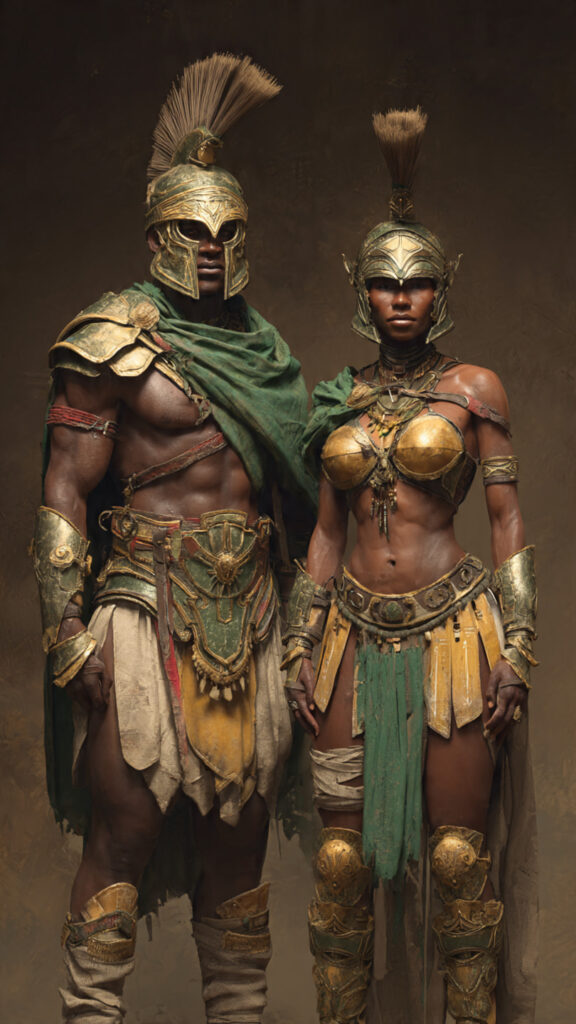We Wear the Spartan Well — But What If We Wore Ours?
Today I saw this dope image — a powerful Black man and woman dressed as Spartans, strong and unbothered, wrapped in green and gold, ready for battle. It stopped me in my tracks. The strength, the unity, the pride — all of it came through. It looked right.
It reminded me how well we wear the Spartan. My HBCU rocks that name with pride. The discipline, the resilience, the courage — we bring all of that, and then some. We’ve made the image our own, redefined it, added soul to something ancient.
But with all respect and uplift, there’s still an irony we can’t ignore.
The Spartan isn’t from our culture. It’s rooted in ancient Greece — a culture that didn’t include us, didn’t fight for us, didn’t carry our stories. So while we wear the name with pride, it’s worth asking: What could it mean to stand behind something that’s truly ours?
What if our mascots came from African warriors, Black resistance, or leaders from our own deep-rooted histories? We’ve got empires, revolutionaries, spiritual icons — a legacy of power and pride that deserves just as much visibility. Maybe even more.
Again — with all respect and uplift — we make the Spartan look good. No doubt. But imagine the power of a symbol that comes from us, represents us, and inspires us to walk even deeper into our identity.
We don’t need to trade strength for authenticity. We can have both.
We already carry the spirit of warriors. Maybe it’s time we let the world see the armor was always ours.
